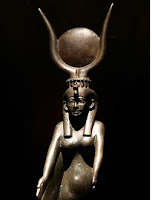Mother Earth
I’ve been thinking about the word “mother” lately. Although
it is generally considered a noun (as in “I need to call my mother this weekend”),
it can also be a verb.
The Merriam-Webster dictionary defines the verb form of
mother as: To care for and protect like a mother
And the Cambridge dictionary defines it in this way: To treat a person with great kindness and love and to try to
protect them from anything dangerous or difficult.
The word mother is also used as a formal address for a
religious woman – specifically within a convent (Mother Superior).
Traditionally, humans have also referred to our planet as
Mother Earth. When you consider the definitions of the word mother, it makes
sense that the earth is the universal mother.
Our earth provides humans and all living beings with all we
need to survive like mothers do for their children: the water we drink, the air we breathe, the
food we eat. The earth’s atmosphere protects us from the deadly rays of the
burning sun.
It can be said, then, that Mother Earth loves us because she
nurtures and cares for us – and we, her children, are compelled to return that
maternal love.
Pagan traditions throughout the world have long worshipped
the earth as goddess, and she has been called by different names.
Isis was one
of the most important deities of ancient Egypt. She had many roles, including
as a magical healer. But her major role was that as mother figure and arbiter
of fertility rites.
 |
| ANDREW WINNING / Reuters / Corbis |
Pachamama is a goddess revered by the indigenous people of the Andes. She is also known as the earth/time mother. She is a fertility goddess who presides over planting and harvesting, embodies the mountains, and causes earthquakes.
Coatlicue is the
Aztec earth goddess, creator and destroyer of earth, mother of gods and
mortals, the one who gave birth to the moon and stars. She was the fearsome
goddess of childbirth and patron of those women who die in childbirth. She is
the goddess of fire and fertility, of life, death and rebirth.
 |
| DeAgostini / Getty Images |
Asase Yaa is regarded by the Ashanti people of Ghana as Mother Earth, the earth goddess of fertility and the upholder of truth. She was primarily worshipped in the fields.
Danu is said to have
literally suckled the gods. In Irish mythology, she is mother of the earth, the
gods, fertility, wisdom, wind and of all the Celtic people.
Many more mother
goddesses were revered throughout the world. There was the Norse goddess, Freya
– a matronly figure associated with the hearth, the mead hall and childbirth. To
the Greeks, the great mother goddess is Rhea,
and in Roman mythology, she's called Cybele, the universal mother of not only the gods but also of all
humans, animals and plant life.
They are the Great Mother, the personification
of Mother Earth.
Regardless of her name, each variation of the mother earth
goddess archetype has similar characteristics. She is a life-giver and the
source of nurturing, devotion, patience and unconditional love. She represents
fertility, and she has the ability to provide for her children.
Just as Mother Earth cares for, provides for, and protects
all her creatures (including humans), we have an obligation to care for her in
return.
Maybe we should call her this weekend.




Comments
Post a Comment